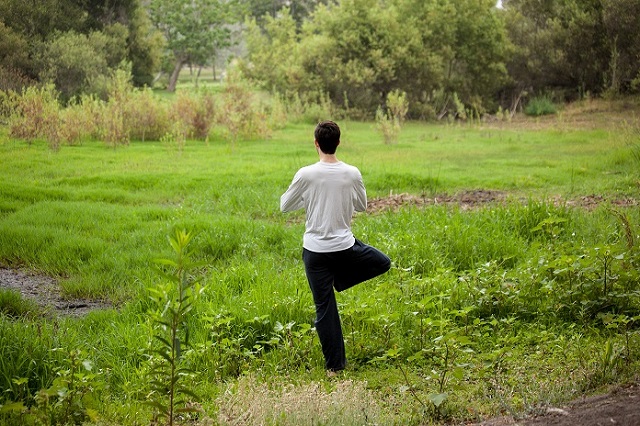I recently had an insightful conversation with one of my best friends, who is also a yoga instructor.
She and I share much in common when it comes to yoga: a love of teaching, a propensity for playing with unique postures and transitions, and an ever-present desire to learn and do more within the yoga community. In this particular conversation, however, we connected on another similarity we share—our insecurities within teaching.
We have both done multiple trainings and hundreds of hours of extended education. We have both taught thousands of classes over the span of five years. We both have “followings” of students and consistently receive positive feedback and reviews from our classes. Yet, we both struggle with finding the confidence within ourselves to explore what else we might be capable of in the seat of the teacher.
Are we qualified enough to lead teacher trainings? Are we capable of hosting retreats? Are we experienced enough to make online yoga videos? Are we learned enough to teach certain concepts and themes? These are the questions we ask ourselves. These questions spark wonder and imagination within us.
When the time comes to answer, however, our responses are typically somewhere along the lines of: “Well maybe, but I’m not sure. I might need more practice/training/studying.”
And before we know it, we are listing all the reasons—in our minds—why we are not qualified or capable. We have a basic understanding of anatomy, but aren’t experts. We have done tons of trainings, but still think we need more. We have strong practices, but maybe not strong enough to do something as big as create online content. We have studied yoga philosophy to an extent, but need to go deeper. We need to go to the Himalayas and sit on a mountain top for a year and be with our spirit before we can fully be ready to teach x, y, and z.
It’s a rabbit hole of listing inadequacies. By the end of it, we have talked ourselves out of pursuing new teaching opportunities while also devaluing what we do know and have accomplished. It is an easy trap to follow into.
Although we definitely did go down that dark rabbit hole of self-doubt in this particular conversation, we were able to climb back out of it together and help each other to remember something we were taught when we were in teacher training:
Teaching yoga is simply sharing your practice with others.
And that is the truth of it. At the end of the day, teaching yoga is only sharing what practice and knowledge you have with those that show up to learn. You do not have to be a master of all poses, fluent in Sanskrit, or a prophet of yogic philosophy. You simply need to be a student of yoga who is ready to spread more yoga by guiding others in it.
In yoga, we are always a student first and a teacher second. At no point does anyone reach the supreme level of yoga practice, knowledge, and power. Even the teachers who we see as extraordinarily experienced, advanced, and gifted remain humble and maintain that there is still so much to learn and so much room for growth in their own practices and teachings. All of this means that anyone who loves yoga and wants to teach it can teach it!
Of course, this doesn’t mean that any yoga student should just stand up and decide to start teaching one day without training. There are certainly formulas, styles, and codes that need to be learned in training to ensure that students are kept safe and the integrity of yoga is kept intact. However, one does not need to have a PhD in yoga in order to teach. You simply learn the principles of teaching and then use them to share your practice and passion with others.
You teach the postures and transitions that you like or are working on in your own practice. You use the cues and directions that resonate with you in your own body. You speak about the concepts and messages that have spoken to you. That is the truth about teaching yoga. None of your yoga instructors are gurus or gods; they are mortal, human beings who have practiced and learned and are now passing on what they know.
In the case of my friend and I, we realized that we needed to stop devaluing and undermining ourselves. We are honest-to-God yoga teachers and are pretty damn good at it. We have the passion and we do indeed have the practice, knowledge, and experience to share, and thus we are fully capable of doing and teaching all the yoga things as long as the right intention is present.
This same concept goes for all types of teaching. Does every math or science teacher know the answer to every single math equation or science query in the entire universe? Of course not! They are merely teaching what they know and passing on the knowledge they have. Do parents have the answers to every question their children ask about the world and life? Definitely not, but they do have their own experiences they can share to help their children as they grow and learn.
So remember this: you are student, and if you want it, you can be a teacher. After all, namaste means, “The teacher in me sees and honors the teacher in you.”
~
Relephant:
A Yoga Teacher’s 5 Realizations—for anyone who’s Starting Something New.
~
Author: Johnny Newnes
Image: Author’s own
Editor: Nicole Cameron
Copy Editor: Catherine Monkman









Read 0 comments and reply